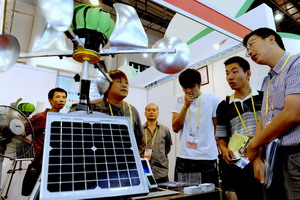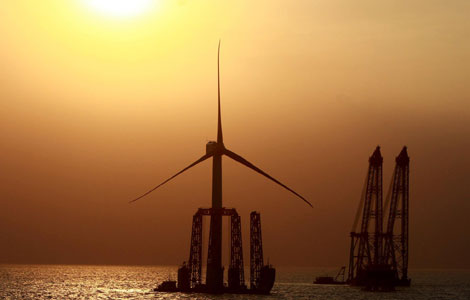Sustainability key to new economic order
Updated: 2011-09-15 07:48
By Pasquale Salzano (China Daily)
|
|||||||||||
The international financial and economic crisis has shown how fragile our Western economies are. That is something totally unexpected for systems that were unanimously defined as "the most advanced" in the world just a little while ago.
However, the crisis has shown one more time the need to manage the new features of the 21st-century global order - namely complexity and interconnectivity through the design of new sustainability models.
The current economic reality is characterised by nonlinearity, discontinuity and a variety of phenomena interwoven with each other and hardly predictable.
This complexity is today reflected in the markets as a strong interconnection, as Lorenz's butterfly-wing-flapping theory reminds us.
Interconnection is obviously an extraordinary advantage for everybody and a positive sign of globalization, but it may be also very dangerous if not accompanied by sustainable development.
Without balanced development, the leap from quantitative to qualitative growth will not happen.
Evaluating the health of a country through quantitative criteria such as GDP, FDI and inflation will not be enough for the future.
A fundamental next step is to manage qualitative growth to face the challenges this new economic era addresses to us: protecting the environment, preserving the future of coming generations and rebalancing the global economy.
As has recently been suggested by Alan M. Taylor: "Although emerging markets have not yet achieved parity with developed markets ... they now appear more stable and better positioned to enjoy sustained growth than they did a generation ago."
This only confirms that the "works are in progress" and this virtuous cycle, even more than before the crisis, must go on.
This all leads us to the third dominant feature of the new 21st-century economic order: sustainability.
The aim of sustainability that can be considered the main qualitative measure of growth - is to encourage the responsible use of resources, making sure that business is making a profit with the lowest impact on the ecology and social stability of the local community.
The best way to reach this goal is establishing joint ventures with local companies or governments sharing mutual technology and know-how. Interaction with both international companies' personnel and local suppliers fosters the best practices and skill transfer with excellent results regarding the growth of the local industry.
In our current global development, everyone needs to play a role.
The author is vice-president, international public affairs, Eni SpA from Italy and a member of the World Economic Forum's Young Global Leaders Community














